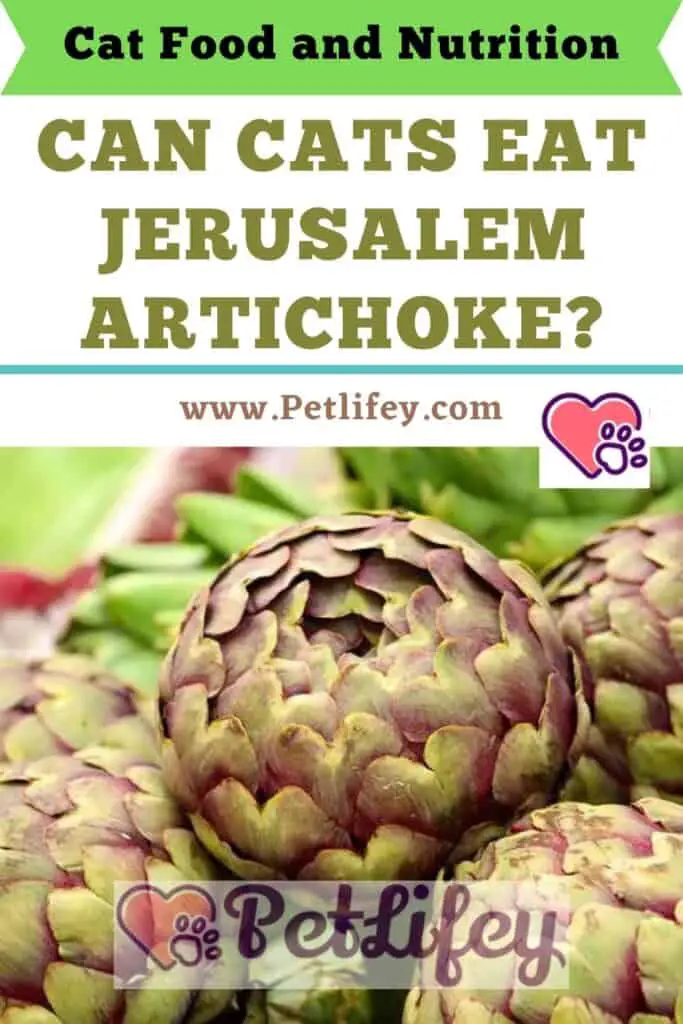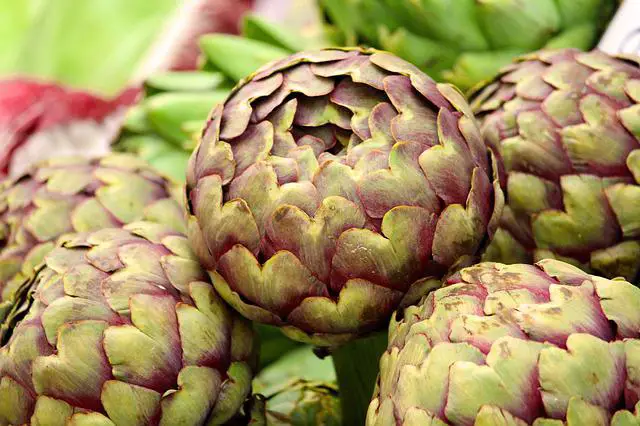
Jerusalem artichoke is a particular ingredient in many recipes for us and with many properties. But can our cat eat it?
Who among us has not heard of the delicious recipes based on Jerusalem artichoke? It is certainly a food with a particular flavor and can be eaten both raw and cooked. By analyzing this tuber well, we will know if the cat can eat Jerusalem artichoke or not.
Can we give Jerusalem artichoke to the cat?
The great curiosity with which the cat is endowed has now been established; he sees us cooking, smells the scent of food and can’t help but come begging us for some.
However, you must always know first if Jerusalem artichoke may involve risks for CAT. We know that the cat’s diet is based almost exclusively on animal proteins, on the other hand it is a carnivore.
But a balanced diet for our feline friend cannot be protein alone, despite the need to take essential amino acids that the cat cannot synthesize on its own, such as arginine or taurine.
What we eat of Jerusalem artichoke is the tuber of a plant of the same family as the sunflower and its seasonality falls in early spring. Wanting to explain its flavor, we could say that its shape is similar to that of a potato but to the taste it looks like an artichoke.
Properties of Jerusalem artichoke
Especially those with special dietary needs already know Jerusalem artichoke because it has many nutritional characteristics.
Being a tuber, it must be kept exactly as we store potatoes, in a cool place and in a place where no sunlight arrives. There are many properties:
- It has a low glycemic index: it is a suitable food for those suffering from diabetes or for those who do not digest carbohydrates as much. It would therefore be a food that the cat could eat: too many carbohydrates would cause intestinal problems for the cat and the risk of obesity.
- It is diuretic.
- Contains many vitamins: it is very rich in vitamin A, essential for bones, eyesight and cartilage, vitamin C and vitamin E: the latter collaborate in the fight against free radicals, which interfere in cellular mechanisms causing damage to the cells themselves.
- Contains minerals: eaten raw Jerusalem artichoke contains a large amount of potassium, but even when cooked, iron, phosphorus and magnesium remain.
- It is rich in inulin: if Jerusalem artichoke were consumed after being frozen, the inulin would turn into fructose and this would obviate the more bitter taste of the tuber. Furthermore, inulin is responsible for the proliferation of intestinal bacterial flora, which is important for the defense against bad microorganisms.
- Contains carotenoids, flavonoids and many antioxidants.
- It is rich in fiber: this means that this food can be used to combat constipation.
Considering all these nutritional properties we could say that if the cat ate Jerusalem artichoke it would only have benefits for its health.
However, it should be known that, exaggerating in quantities, the very presence of inulin could cause episodes of diarrhea and intestinal inflammation.
Inulin, in fact, is considered a prebiotic and it is certainly positive to introduce it in our diet, both ours and our cat: but since we do not have enzymes that can digest it, it is advisable not to eat too many foods that contain large quantities of it.
Useful tips

If we want our cat to be well we must first pay attention to what we include in its diet.
Without a doubt, Kitty cannot eat any type of human food, has a particular metabolism, digests only small amounts of carbohydrates and is often a lactose intolerant cat.
When we want to prepare the cat’s meal it is important to remember not to season the foods as we would do for us: too much salt, for example, could cause sodium poisoning in our cat and would cause him a great discomfort.
It is always advisable to choose foods of animal origin but with simple proteins to be easily metabolized without problems: the cat’s gastrointestinal system is easily susceptible to inflammation.
If there are problems of obesity in the cat it is necessary, for example, to reduce the fats in the diet and to prefer protein foods; the same would be true if there was a condition of diabetes in the cat: in this case a food with a low glycemic index such as Jerusalem artichoke would be included in its diet.
In order for our cat to live well, in addition to respecting his feline nature and guaranteeing him a healthy and peaceful environment, we undertake to pay attention to what he eats, often a great prevention to many diseases.






